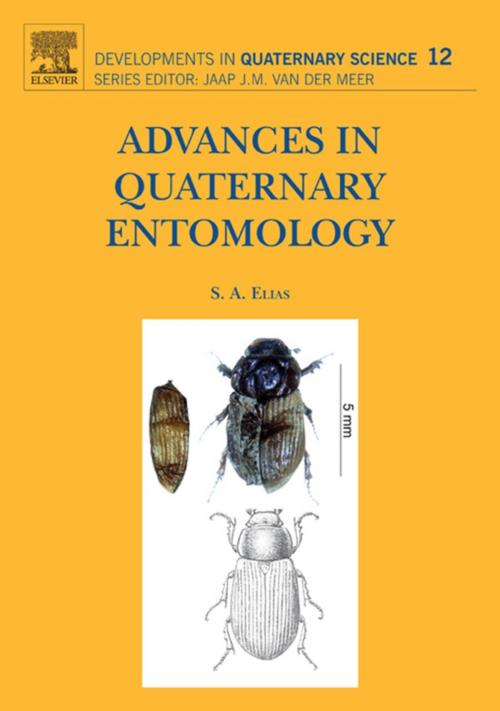Advances in Quaternary Entomology
Nonfiction, Science & Nature, Science, Biological Sciences, Entomology, Earth Sciences, Geology| Author: | Scott Elias | ISBN: | 9780080958491 |
| Publisher: | Elsevier Science | Publication: | August 18, 2009 |
| Imprint: | Elsevier Science | Language: | English |
| Author: | Scott Elias |
| ISBN: | 9780080958491 |
| Publisher: | Elsevier Science |
| Publication: | August 18, 2009 |
| Imprint: | Elsevier Science |
| Language: | English |
Advances in Quaternary Entomology addresses the science of fossil insects by demonstrating their immense contribution to our knowledge of the paleoenvironmental and climatological record of the past 2.6 million years. In this comprehensive survey of the field, Scott A. Elias recounts development of scholarship, reviews the fossil insect record from Quaternary deposits throughout the world, and points to rewarding areas for future research. The study of Quaternary entomology is becoming an important tool in understanding past environmental changes. Most insects are quite specific as to habitat requirements, and those in non-island environments have undergone almost no evolutionary change in the Quaternary period. We therefore can use their modern ecological requirements as a basis for interpreting what past environments must have been like.
- Describes and identifies principal characteristics of fossil insect groups of the Quaternary period
- Ties Quaternary insect studies to the larger field of paleoecology
- Offers global coverage of the subject with specific regional examples
- Illustrates specific methods and procedures for conducting research in Quaternary Entomology
- Offers unique insight into overlying trends and broader implications of Quaternary climate change based on insect life of the period
Advances in Quaternary Entomology addresses the science of fossil insects by demonstrating their immense contribution to our knowledge of the paleoenvironmental and climatological record of the past 2.6 million years. In this comprehensive survey of the field, Scott A. Elias recounts development of scholarship, reviews the fossil insect record from Quaternary deposits throughout the world, and points to rewarding areas for future research. The study of Quaternary entomology is becoming an important tool in understanding past environmental changes. Most insects are quite specific as to habitat requirements, and those in non-island environments have undergone almost no evolutionary change in the Quaternary period. We therefore can use their modern ecological requirements as a basis for interpreting what past environments must have been like.
- Describes and identifies principal characteristics of fossil insect groups of the Quaternary period
- Ties Quaternary insect studies to the larger field of paleoecology
- Offers global coverage of the subject with specific regional examples
- Illustrates specific methods and procedures for conducting research in Quaternary Entomology
- Offers unique insight into overlying trends and broader implications of Quaternary climate change based on insect life of the period















